Updates, 2 May 10: Branch secretary claims ETU misrepresented by article and my response and a further response by Tony Reeves; Motion carried unanimously by meeting of AMWU members in Redbank Railway workshops in June 2009 calling for industrial action to defeat privatisation.
On Saturday 10 April, I attended a talk hosted by the Search Foundation about privatisation and, in particular the Bligh Government's $15 billion fire sale of assets. The speakers included Professor John Quiggin who owns the forum discussion site johnqiggin.com, Mark Bahnisch, who owns the forum discussion site, larvatusprodeo.net and Peter Simpson, Queensland Secretary of the Electrical Trades Union (ETU), which was an avowedly hard-line anti-privatisation union.
ETU State Branch secretary gives disappointing prognosis, but discussion inadequate
During his talk, to my dismay, Peter Simpson revealed that the Electrical Trades Union now considered the prospects of defeating the Bligh Government's privatisation program to be very remote. In this he confirmed my worst expectations that the union movement's opposition to privatisation was not strongly held.
I hotly disputed Peter Simpson's assertion that the fight had been lost, several times, from the floor.
I conveyed my opinion that the overwhelming public opposition to the fire sale, the expressed willingness of many rank and file unionists in the affected industries to fight the fire sale with industrial action and the expressed willingness of the public to support such industrial action, gave every reason to hope that even if the ETU and the other purportedly anti-privatisation unions were to call membership meetings to launch industrial action against privatisation, such a campaign could succeed with relative ease, even at this late stage.
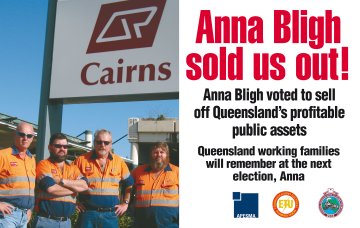
Example of billboard featuring angry union members. Were
these ever intended by our union officials to be more than
empty bombast?
The familiar justification for the unions' refusal to take industrial action was put by the ETU State Secretary as well as others in agreement with him at that forum. That justification was that industrial action was likely to be in contravention of laws and would result in union leaders and members incurring fines in the order of tens of thousands of dollars. Peter Simpson also claimed that, whilst some pockets of the ETU membership wanted to take industrial action against privatisation, most did not.
To the latter point I tried to ask if the ETU had ever called meetings of its membership so that the privatisation matter could be discussed and decided upon democratically, but the afternoon tea break intervened. By the time the discussion resumed, Peter Simpson had left.
In explaining his rationale for pronouncing defeat, Simpson raised the question of the Beattie Government's privatisation of Energex and Ergon in 2006. These were the retail arms of Queensland's publicly-owned electricity utilities. Simpson said that something should have been done back then, but it was too late now.
It is my own recollection of the time that no Queensland trade union, including the ETU, uttered a word in protest. Nor did they lift a finger to prevent any of the other Beattie Government privatisations: The SGIO (1998), TAB (1999), the Dalrymple Bay coal loader (2001), The Golden Casket lottery agency (2007), Mackay and Cairns and Brisbane airports (2008-2009) (See Appendix 1).
For a brief few months after Fraser and Bligh announced the $15 billion fire sale in May 2009, it seemed that some union leaders had finally seen the light and were seriously resolved to defeat privatisation, but Peter Simpson's words at that forum made that hope seem misplaced.
A perspective which needs wider dissemination
The next week I attempted to make this post to two political forums: John Quiggin's site and Mark Bahnisch's, where each had written an article about the Privatisation talk hosted by the Search Foundation, described above. It was published on John Quiggin's site but not on Mark Bahnisch's. Although Mark Bahnisch personally assured me when I approached him at the forum on 10 April that he had no objections to me contributing my comments to Larvatus Prodeo and although, in addition, I have since received an encouraging e-mail from Mark Bahnisch, my post has still not appeared on his site.
The reason I am publishing my comment here also is that I believe that the perspective it reveals should be widely disseminated. Here is what I posted to johnquiggin.com:
I also attended that talk.
Of course I had a lot to say and only said a fraction of what I would have liked to have said.
I dispute the accepted wisdom that privatisation cannot be defeated.
If the unions, claiming to be opposed to privatisation, called meetings of members and asked them if they wanted to take industrial action to stop privatisation, I have little doubt that they would overwhelmingly support that action.
And there is no doubt that the broader Queensland public, overwhelmingly opposed to privatisation (at least 79% against) would support that action. An online opinion poll taken by the Courier-Mail when the Redbank Railway workers struck last November showed 66% would support industrial action.
However, as far as I am aware, none of the Unions have ever offered their members that choice. Nowhere has a ballot been held or mass meetings called of the members of these unions so that the issue of taking industrial action could be considered.
Unconvincing justification for failure to take industrial action
ETU Secretary Peter Simpson's justification for refusing to take industrial action seemed very unconvincing.
Essentially the reason he gave the meeting was that if they took industrial action, he thought it likely that the Bligh Government would use punitive anti-union legislation, presumably inherited from the Howard Government, to impose fines of tens of thousands of dollars on the unions and individual members.
Redbank workers case
If this was the case, then why weren't the workers from Redbank fined when they struck in December?
Surely the fact that they were not shows that taking industrial action need not automatically lead unions being fined and union officials jailed.
How could the Bligh Government possibly expect to get away with fining workers for taking industrial action against its privatisation program opposed by 79% of the Queensland public?
And even if the Bligh Government were prepared to stoop so low, then, at least, this should be made apparent to the public. At the very least why not at least take industrial action to the point at which the Bligh Government makes these threats and then decide at that point, whether of not to back away?
Because they do not, the Bligh Government is able to completely avoid the additional odium that any threat to resort to the use of Howard Government industrial laws would entail.
I also think that members of these unions, and members of the public who have campaigned so hard to stop privatisation these past months are entitled to an explanation from the leaders of unions such as the ETU.
Union inaction aids entrenchment of government privatisation position
The situation they now face, in which the unions now claim the Bligh Government's privatisation plans have become too entrenched to stand any chance of being reversed was a predictable consequence of the Unions' refusal to take strong industrial action before this situation came about.
In a leaflet I distributed outside the Labor Party conference on the Queen's Birthday weekend last year, I warned of the likelihood of just this problem :
A prolonged campaign ...
Clearly many are looking to the unions to act decisively against the privatisation threat, yet, instead, some union officials are talking of a drawn out industrial campaign that could last up to two years.
This is insane!
If the union movement cannot win public support now, then when can we ever hope to win?
If decisive action is not taken early and, instead, the industrial campaign is drawn out, this will surely only make our fight harder.
If the privatisation legislation is carried by Parliament and the the Government has entered contracts with private companies, financial advisers, investment brokers, banks, etc, are we more or less likely to change the Government's mind with industrial action?
And how are we expected to maintain our drive and enthusiasm for two years?
... or decisive action now?
In fact, it should be possible to win the fight against privatisation without a single union member needing to down a tool for even an hour.
The Queensland Union movement could deliver to the Government a simple ultimatum:
Either (A) withdraw completely the privatisation legislation or (B) agree to put the privatisation legislation to the people of Queensland through a referendum, or else face an immediate sustained campaign of industrial action and public protest until the legislation is withdrawn.
The union movement should also demand that Fraser and Bligh justify privatisation in a televised debate before the Queensland public."
Could any Government other than, possibly, the Burmese military junta dare proceed in the face of such an ultimatum?
So, by their own admission the unions' adopted strategy has failed.
I think that members of these unions should be entitled to know:
- Whatever led them to ever hope that occasional street protests, the collecting of signatures on petitions and their various efforts to 'convince' a public, already solidly on their side almost as soon as the fire sale was announced on 23 May last year, of their case, would cause Bligh and Fraser to change their minds;
- If they truly imagined that their feeble campaign would succeed, when did it finally dawn on them that it would not;
- Why, at that point did they not give their members the choice of taking the stronger action that would have been necessary for success?
It was said by others at the meeting that they would not like to be in the shoes of the avowedly anti-privatisation unions at the moment.
I would suggest that within the ranks of their unions, and, indeed, even in the broader public there are probably thousands who would gladly step into their shoes in order to be able show the leadership necessary to stop the theft of our assets.
I suspect that they would also be perfectly happy to defy whatever anti-union laws the current union officials claim the Bligh Government would dare use against them.
Many who wrote letters to newspapers, stating that they were not normally sympathetic to unions, but who expressed their willingness to support the unions if they took industrial action against [privatisation] will now perceive the unions as only self-interested and the newsmedia, particularly the Courier-Mail can be depended upon to reinforce this impression.
A chance to broaden the appeal of unionism as well as to stop privatisation will have been needlessly lost.
What you can do: If you are a member of a union affected by privatisation, particularly a member of the ETU, contact your union and demand that meetings be called so that this question be decided democratically by the membership.
See also: "If the unions get off their knees, privatisation can be stopped!" of 4 May 10, Queensland Not For Sale - the Qld Council of Union's anti-privatisation web site, "Time for the B team" of 11 Apr 10 on johnquiggin.com and "Explaining Bligh’s privatisation push: Search Foundation forum" also of 11 Apr 10 on larvatusprodeo.net
.
My comment: None of the Trade Union Movement including the avowedly hard-line anti-privatisation Electrical Trades Union raised their voices in opposition to the sale.
The predictable outcome, completely contrary to Premier Peter Beattie's assurances was massive hikes in electricity charges, partly to pay for price gouging by private corporations and partly to pay for the duplication entailed in setting up the supposedly competitive framework.
In spite of this disastrous outcome, the entire Queensland Trade Union movement looked the other way as Beattie and his successor Anna Bligh, proceeded, in subsequent years, to sell off the Golden Casket lottery agency and Mackay, Cairns and Brisbane airports and to make obvious preparations to sell off Queensland Rail even prior to the 2009 elections.
Dear Sir/Madam,
What right does Premier Beattie have to sell off, possibly to foreign interests, Energex and Ergon, assets which rightfully belong to the people of Queensland, especially given the disastrous records of Privatisation in South Australian and Victoria ("Power Sale Likely", 24 Apr")?
How is this consistent with the Beattie Government's own supposed opposition to the Telstra privatisation?
If this Government had any true commitment to Labor principles, it would abandon the sale. If it had any commitment to the principle of democracy it would put the proposed sell-off to the Queensland electors at the forthcoming state elections.
James Sinnamon
Re: Your feedback sought on my blog article concerning union movement's
apparent surrender over privatisation
Date: Friday 04:12:46 pm
From: Peter Simpson
To: James Sinnamon
As usual james you have misrepresented our position. I sometimes wonder
whose side you are on
Cheers
Peter
Re: Your feedback sought on my blog article concerning union movement's
apparent surrender over privatisation
Date: 1 May 2008 02:55:36 am
From: James Sinnamon
To: Peter Simpson
Dear Peter Simpson,
Firstly, thanks for your response.
Even though it is very brief I would still like to append it to my article
with your permission.
I would also be happen to append to my article any more detailed comments you
would care to make in response to my article. And I would also be happy to
provide links to any ETU material which could demonstrate where my assessment
is wrong.
Please see below for my responses:
On Fri, 30 Apr 2010, Peter Simpson wrote:
> Re: Your feedback sought on my blog article concerning union movement's
> apparent surrender over privatisation Date: Yesterday 04:12:46 pm
> From: Peter Simpson
> To: James Sinnamon
>
> As usual james you have misrepresented our position. ...
Could I ask: what do you mean, "as usual"?
I don't recall where you have even once before, acknowledged or responded to
my views on the campaign's tactics, (that is other than when you expressed
your disagreement with my online petition calling for new state elections in
which I made no direct reference to the ETU).
If I had been misrepresenting the position of the ETU for the last 10 months I
would have appreciated being told before now that I had.
> ... I sometimes wonder whose side you are on.
I can assure you, that from the bottom of my heart I am disgusted with the
thieves and their glove puppets in State Parliament, who are preparing to
plunder the assets that rightly belong to to the people of Queensland against
their explicitly stated opposition and would do anything I could to stop
them.
I can also assure you that when and if the ETU and the other avowedly
hard-line anti-privatisation unions ever stand up to this Quisling state
Government to prevent privatisation, then I will be right behind you as will
the overwhelming majority of the Queensland public.
> Cheers
>
> Peter
Yours sincerely,
James Sinnamon
Re: Your feedback sought on my blog article concerning union movement's
apparent surrender over privatisation
Date: Today 04:30:35 pm
From: Tony Reeves
To: Peter Simpson
CC: James Sinnamon, ...
Comrades,
In all the many years I have been proud to call myself a socialist, I
have been dismayed so many times that some people who claim they are
on the Left find it easier (more fun?) to attack comrades of the Left
I don't know where James got the material for his blog (as Peter
said, maybe we are in a parallel universe to him) but despite the
inaccuracy of his allegations, why does he attack one of the few
people in the ALP and union movement who has done more than any
others to fight against the privatisation.
Is it the old story, that people masquerade on the Left merely to try
to cause damage to the effective campaigners?
Shame, James S. What have YOU done to stop the asset sales, other
than wrongly criticise a person who has worked (and continues to do
so) against this anti-ALP program?
I continue to support Simmo as I believe he is one of the most
effective voices in this campaign. We have no guarantee of victory,
and seriously, if the ETU stopped all its members from working (for
how long, James?) it would not make a whit of difference to the
arrogant drivers of this shameful policy.
I am happy to share with anyone reports on some of my own activities
in the campaign. All my efforts have been targeted against the
perpetrators of the privatisation, none against those who are
fighting against it.
Best regards
Tony Reeves
Don't get angry, get even:
How privatisation can be stopped
In what sort of 'democracy' can the clear wishes of the public be repeatedly ignored as they have by the Queensland 'Labor' Government since 1998?
Since Labor won office the following assets have been sold:
- The SGIO (1998);
- The Totalisator Agency Board (TAB) (1999);
- The Dalrymple Bay coal loader (2001);
- The retail arms of the Energex and Ergon electricity companies (2006);
- The Golden Casket state lottery agency (2007);
- Cairns, Mackay and Brisbane airports(2008);
Except where Peter Beattie broke his election promise to retain half ownership of the the SGIO (State Government Insurance Office, now known as SunCorp) the public were never consulted. In the 2009 state elections, Queenslanders were once again denied their democratic right to decide the issue of privatisation by Anna Bligh's silence.
Public outcry against privatisation ignored
In recent weeks, the Queensland public has resoundingly rejected privatisation in letters to the editor, on talkback radio and online forums. 91% of respondents to a poll run by the Courier Mail answered 'no' the question "Should public assets be sold to balance the budget?'. Workers, threatened by privatisation, have protested, some even going on strike. Anna Bligh has disregarded this outcry and, instead, obstinately pushed ahead, stating her intention to ignore the State Labor Party Conference should the vote go against privatisation.
Why privatisation can be stopped
Anna Bligh is not (yet) the ruler of a police state and can be stopped. However, for this to happen, we must be every bit as determined as she is. Many unionists and ordinary members of that public have shown that they have that determination:
"It is clear that successive Labor governments since Goss have grossly mismanaged this State's finances. It has no mandate to sell State Assets, The Government holds these as trustees for the people of Qld. It is time for The People; nearly 50% of whom did NOT vote for Labor to take to the streets and, dare I say it, support the Unions in their fight against this corrupt Labor Government."
"I hope you can sleep at night Ms Bligh and Co. as people that will be effected by this won't. And if the unions don't oppose this they will be doomed as well."
"... these assets belong to the QLD public and she has no right to sell any of them. Money hungry private sector companies will snap up our assets and then make us pay dearly. The unions need to try everything in their powers to stop these sales and as a GOC worker I will be more then happy to strike over this." (from comments posted to a Courier Mail online reader's comments page.)
"I'm not a union man, but if they are seriously planning to stop privatisation, they
have my support."
A prolonged campaign ...
Clearly many are looking to the unions to act decisively against the privatisation threat, yet, instead, some union officials are talking of a drawn out industrial campaign that could last up to two years.
This is insane!
If the union movement cannot win public support now, then when can we ever hope to win? If decisive action is not taken early and, instead, the industrial campaign is drawn out, this will surely only make our fight harder.
If the privatisation legislation is carried by Parliament and the the Government has entered contracts with private companies, financial advisers, investment brokers, banks, etc, are we more or less likely to change the Government's mind with industrial action?
And how are we expected to maintain our drive and enthusiasm for two years?
... or decisive action now?
In fact, it should be possible to win the fight against privatisation without a single union member needing to down a tool for even an hour.
The Queensland Union movement could deliver to the Government a simple ultimatum:
Either (A) withdraw completely the privatisation legislation or (B) agree to put the privatisation legislation to the people of Queensland through a referendum, or else face an immediate sustained campaign of industrial action and public protest until the legislation is withdrawn.
The union movement should also demand that Fraser and Bligh justify privatisation in a
televised debate before the Queensland public.
Could any Government other than, possibly, the Burmese military junta dare proceed in the
face of such an ultimatum?
What you can do
- Protest at the opening of Parliament on 16 June;
- Contact every member of state Parliament, Labor, LNP or independent and ask him/her to vote on the floor of Parliament for a bill requiring that the privatisation be put to a referendum;
- If you are a member of the Labor Party, demand the disendorsement of each and every MP who votes against the Labor Party's anti-privatisation policy;
- At election time vote for candidates opposed to privatisation;
- Attend union meetings and support any industrial action against privatisation;
- Write letters to the newspapers, phone talkback radio and state your support for this campaign on online forums;
- Stay in touch with others opposed to privatisation, including the author of this leaflet.
About James Sinnamon, the author of this leaflet
I am a community activist, concerned about democracy, workers' rights, economic justice and, above all, the parlous state of the world's environment.
I stood as an independent candidate in the state elections in order to give voters an opportunity to oppose privatisation at the ballot box, but was ignored by Queensland's pro-privatisation newsmedia, including even the ABC.
I administer web sites and write articles for those web sites about my concerns. These include http://candobetter.org and http://citizensagainstsellingtelstra.net (currently off-line). I encourage others, who share my concerns, to also contribute to those web sites.
I can be reached by e-mailing james[AT]candobetter.org of by phoning 0412 319669.
These motions would have been carried some time in June 2009. In an e-mail I received from a member of the AMWU on 20 Aug 09, I was told that these motions were carried over two months ago. The first calling for industrial action was carried unanimously after vigorous debate, whilst the second, calling for the AMWU to dis-affiliate from the Labor Party was narrowly defeated.
"1. This meeting of AMWU members condemns the asset sales devised by the ALP state labor government. We recognise that without a sustained campaign of industrial action, nothing will stop the sales from proceeding. Anna Bligh herself has said that she won't negotiate on the sell-off. We need to force her hand and the only way we can do that is industrially. We need an ongoing campaign of industrial action through rolling strikes in conjunction with community protests. We demand that our state secretary approves of any industrial action worked out collectively by the membership and seeks the support of the other railway unions." (carried unanimously)
"2. This 2nd motion concerns our affiliation to the ALP. The objectives of the AMWU are clearly stated in its constitution. The AMWU's primary objective is 'the control of industry in the interests of the community'. The affiliation of our union to the ALP hinders that objective. The ALP is thoroughly commited to defending the interests of capital at the expense of working people whom it treats with contempt. 91% of respondents in a pole conducted by the Courier Mail opposed the privatisations, yet the ALP shows no sign of backing down. It's actions in government reflect its pro-capitalist character. It is not a workers party. Disaffiliation is a necessary step in curbing its corruptive influence on the workers movement.
"This meeting demands that the state council of the AMWU respect the wishes of the membership and dis-affiliate the Qld branch of the AMWU from the ALP." (narrowly defeated)
In the e-mail containing those motions, I was also advised:

Andew Dettmer, Qld
branch Secretary of
the AMWU and Qld
branch ALP President
"However the AMWU convener of the site who wasn't present at the mass mtg due to personal circumstances put forward a similar motion at a delegates mtg, which not only called for dis-affiliation from the ALP, but also called on Andrew Dettmar to resign from the position of ALP state President. It stated that holding such a position was counter to the needs of the union and hindered the effectiveness of any campaign against the privatisation. The motion was endorsed unanimously without anyone speaking against."
Andrew Dettmer, the Secratary of the Queensland branch of the AMWU was the principle mover of the resolution carried by the State Labor Party conference held on the Queen's Birthday which allowed the State Government to proceed with the fire sale. Although nominally opposed to privatisation, delegates from the AMWU and other 'left' unions were encouraged at the conference to be absent when the vote was put.
In spite of his pivotal role in giving the Bligh Government the green light to proceed with privatisation, he was still allowed to address the anti-privatisation rallies held since then.
 Once again the Preston Beach Golf Club near Mandurah, Western Australia is undergoing a kangaroo cull. In 2007 the Shire of Waroona was granted permission to shoot 50 western grey kangaroos on this two-bit golf course and now the DEC is allowing them to kill 100. Officially the cull started on the 1st of May and the shire has until the 16th to obtain their quota.
Once again the Preston Beach Golf Club near Mandurah, Western Australia is undergoing a kangaroo cull. In 2007 the Shire of Waroona was granted permission to shoot 50 western grey kangaroos on this two-bit golf course and now the DEC is allowing them to kill 100. Officially the cull started on the 1st of May and the shire has until the 16th to obtain their quota.



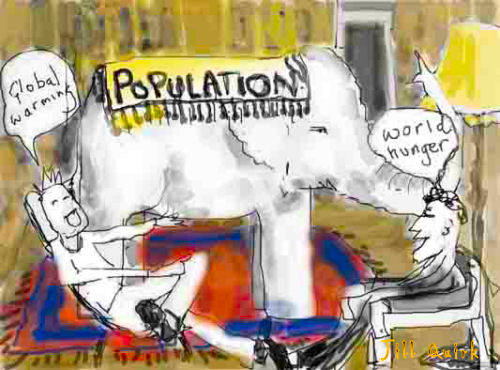
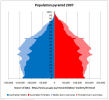 A graph from "Australian Population Scenarios in the context of oil decline and global warming" at http://www.crudeoilpeak.com shows that the bulge in the Australian population pyramid which growth economists say will cause a larger number of aging people than the economy can cope with, was obviously caused by high levels of post-war immigration. Dr Jane O'Sullivan has quantified the enormous cost in new infrastructure and maintenance of population growth.
A graph from "Australian Population Scenarios in the context of oil decline and global warming" at http://www.crudeoilpeak.com shows that the bulge in the Australian population pyramid which growth economists say will cause a larger number of aging people than the economy can cope with, was obviously caused by high levels of post-war immigration. Dr Jane O'Sullivan has quantified the enormous cost in new infrastructure and maintenance of population growth. This population pyramid, which appeared at
This population pyramid, which appeared at 

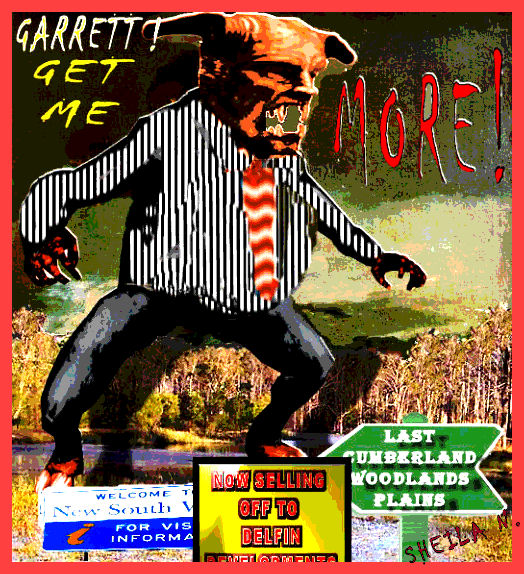 ADI Site -
ADI Site -

 (saltmarsh coastline typical in Australia source: Wikimedia commons).
(saltmarsh coastline typical in Australia source: Wikimedia commons).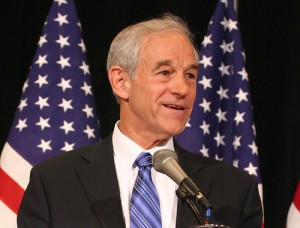
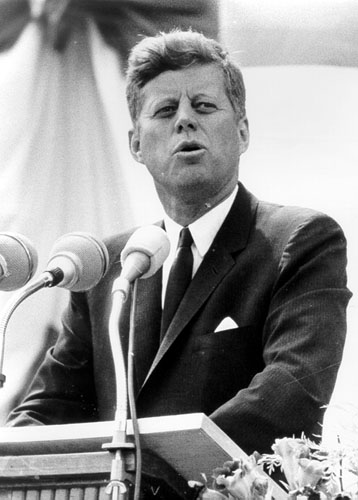

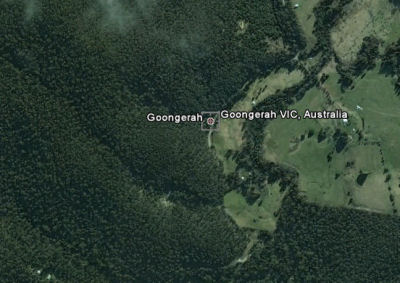

 We look at Dr Katharine Betts's latest graph of ABS statistics on the ratio of working to dependent in Australia, noting that it is both untrue and discriminatory to imply that the 'Aged' are by far the biggest group of 'dependents.' In relation to the graph, we also look at the role of land-use planning and the social division of work in industrial society in creating financial dependencies where none previously existed. We note that established financial and institutional investment in the post-war industrial-contractual model makes it inflexible and resistant to changes in economic feedback, but that change it must as fossil fuels deplete. Left to their own devices, Australians would probably return to the human default social organisation around kin and place, which is flexible and low cost. This will only become possible, however, with cheaper land and an economic system which permits increasing relocalisation and more flexible use of land than the current plans for packed appartments and dense dormitory-suburbs anticipate.
We look at Dr Katharine Betts's latest graph of ABS statistics on the ratio of working to dependent in Australia, noting that it is both untrue and discriminatory to imply that the 'Aged' are by far the biggest group of 'dependents.' In relation to the graph, we also look at the role of land-use planning and the social division of work in industrial society in creating financial dependencies where none previously existed. We note that established financial and institutional investment in the post-war industrial-contractual model makes it inflexible and resistant to changes in economic feedback, but that change it must as fossil fuels deplete. Left to their own devices, Australians would probably return to the human default social organisation around kin and place, which is flexible and low cost. This will only become possible, however, with cheaper land and an economic system which permits increasing relocalisation and more flexible use of land than the current plans for packed appartments and dense dormitory-suburbs anticipate.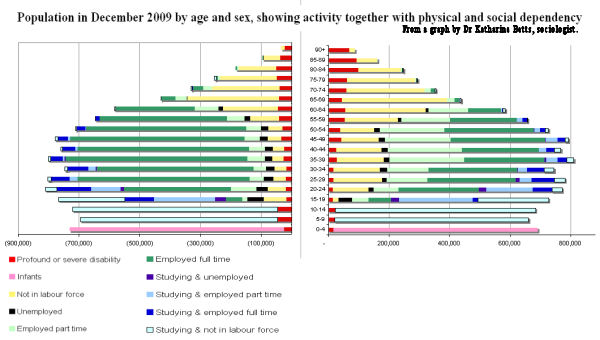
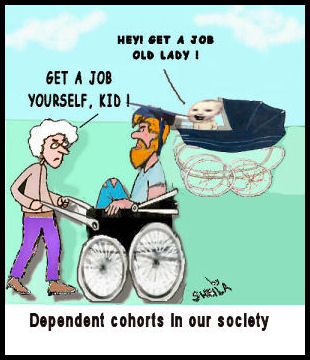

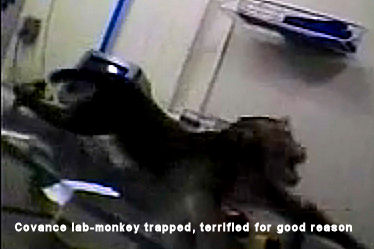
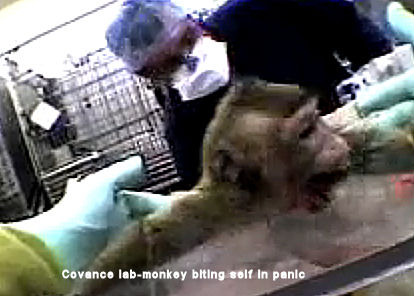
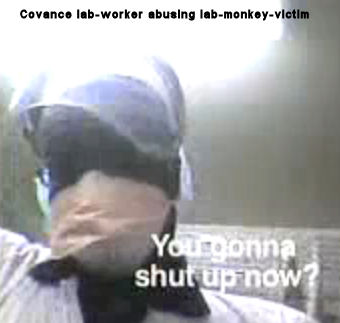
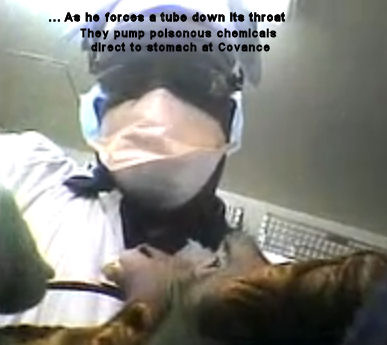
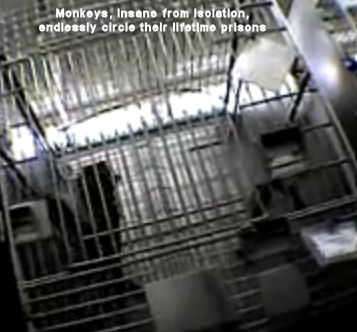
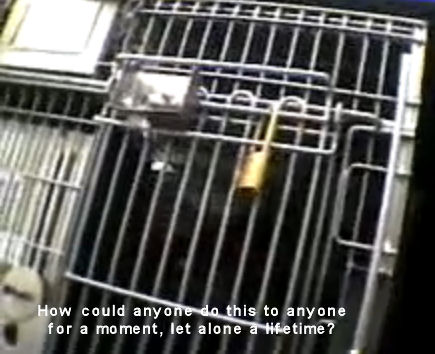
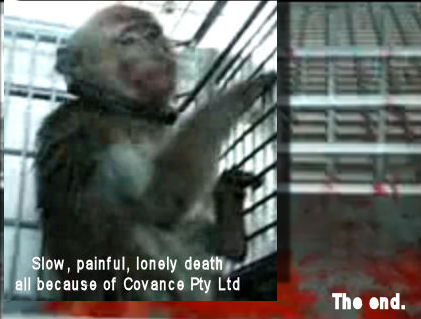

 Report on the Federation Square (Victoria, Australia) Population Forum on 23 April 2010, where Mark O'Connor debated Marcus Spiller.
Report on the Federation Square (Victoria, Australia) Population Forum on 23 April 2010, where Mark O'Connor debated Marcus Spiller. 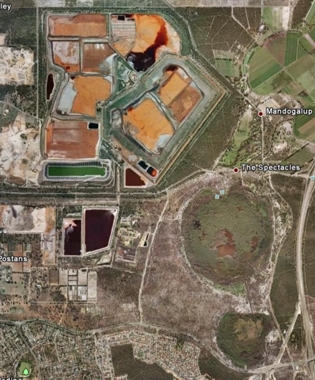

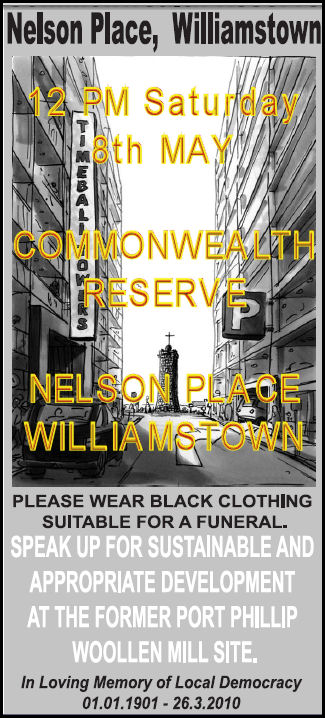

 Republished here to give background to Sheila Newman's remarks in her debate with Steve Bracks on the Jon Faine show 19-4-2010. You can
Republished here to give background to Sheila Newman's remarks in her debate with Steve Bracks on the Jon Faine show 19-4-2010. You can 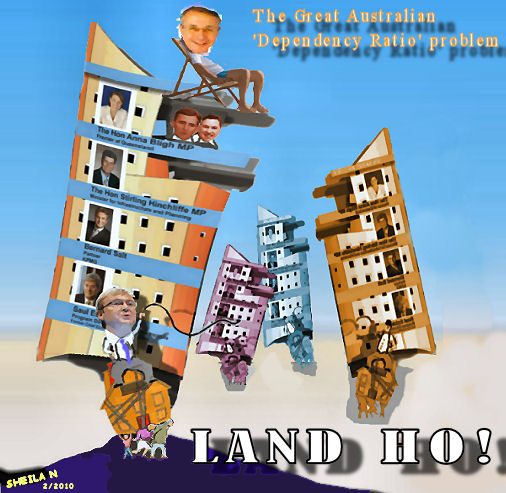
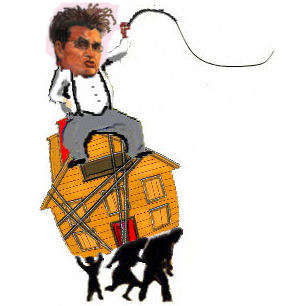
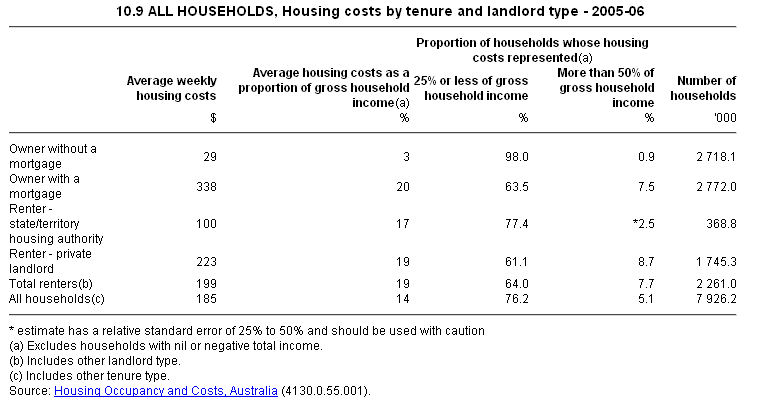
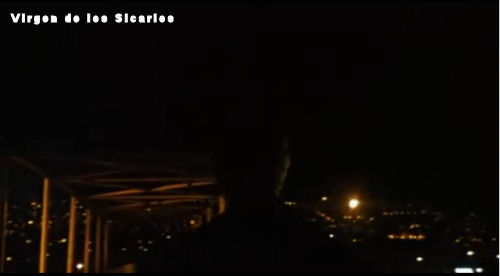
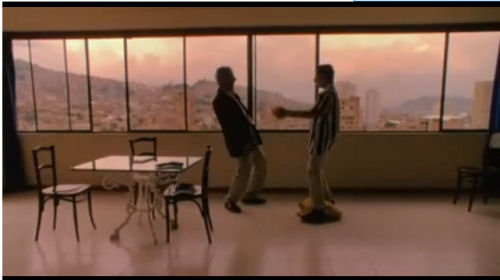

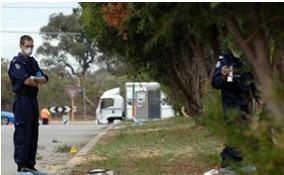
 Photo by Jill Quirk
Photo by Jill Quirk


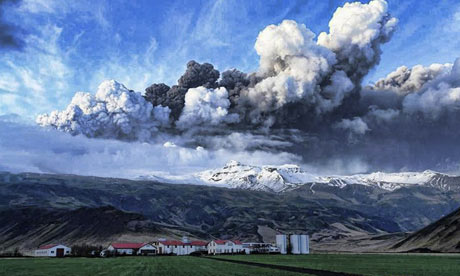
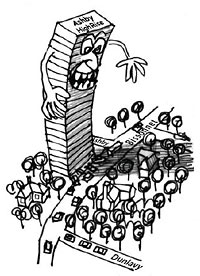
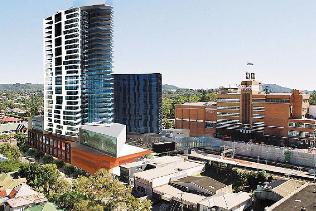



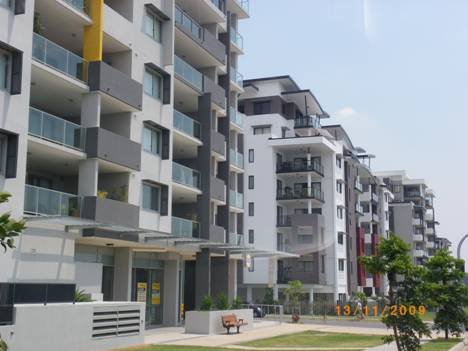

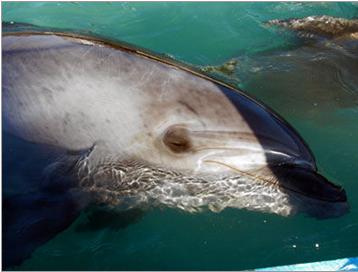
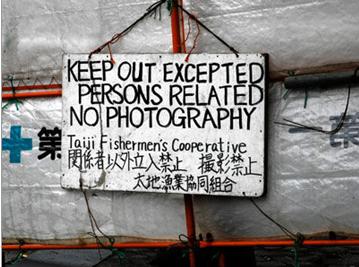
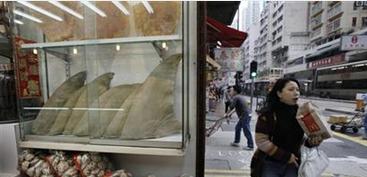
Recent comments